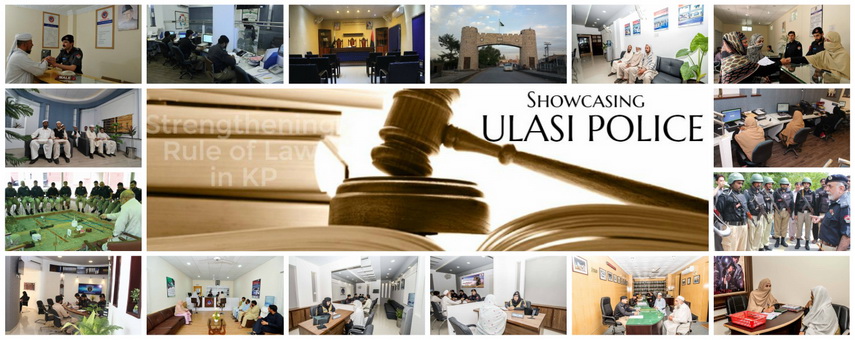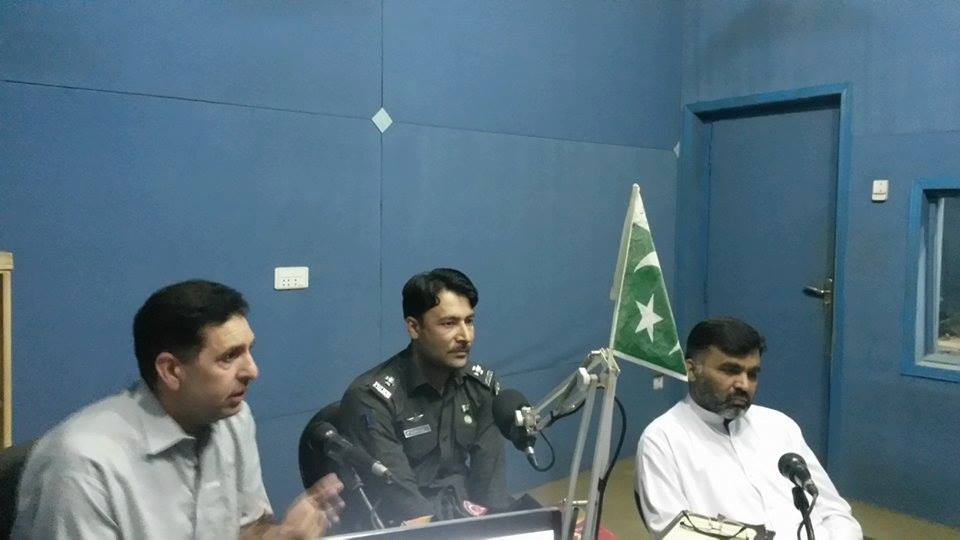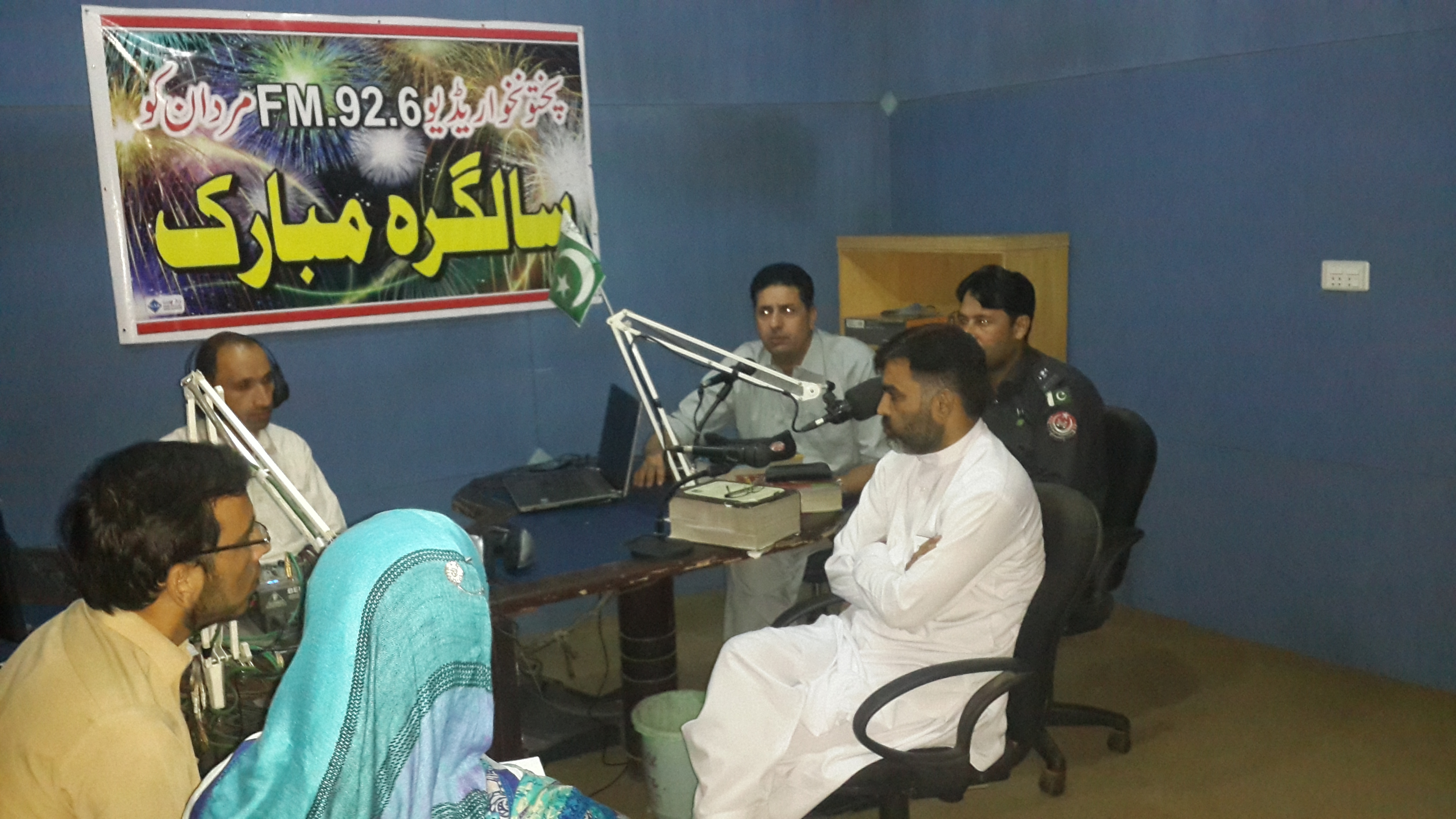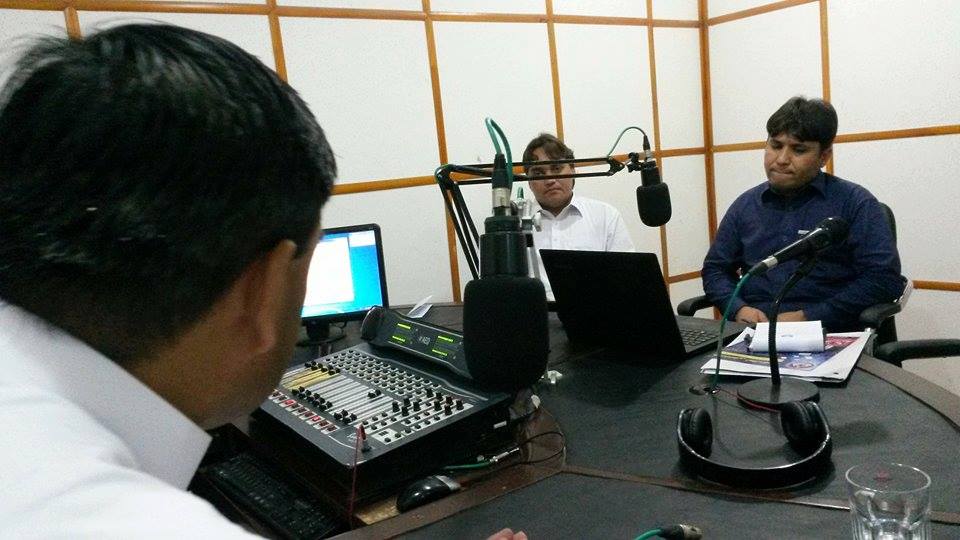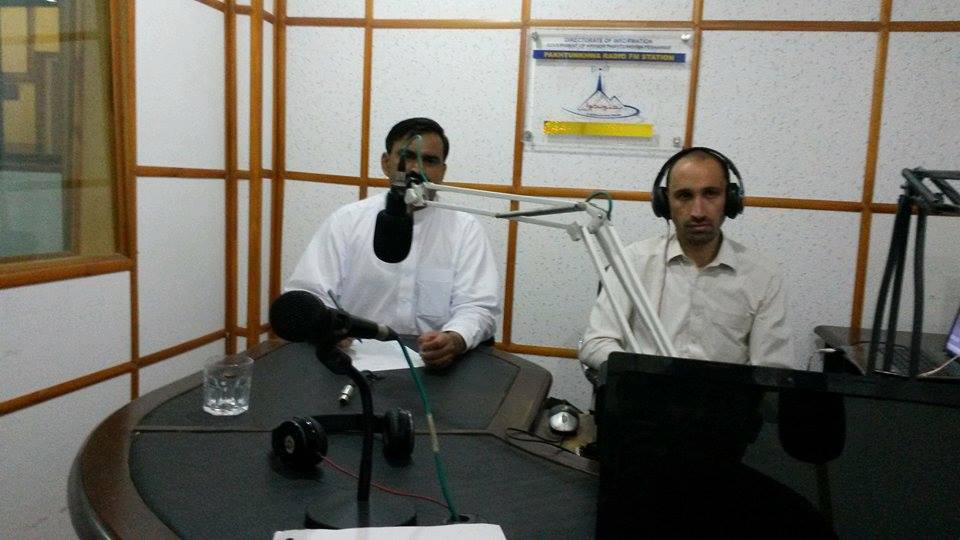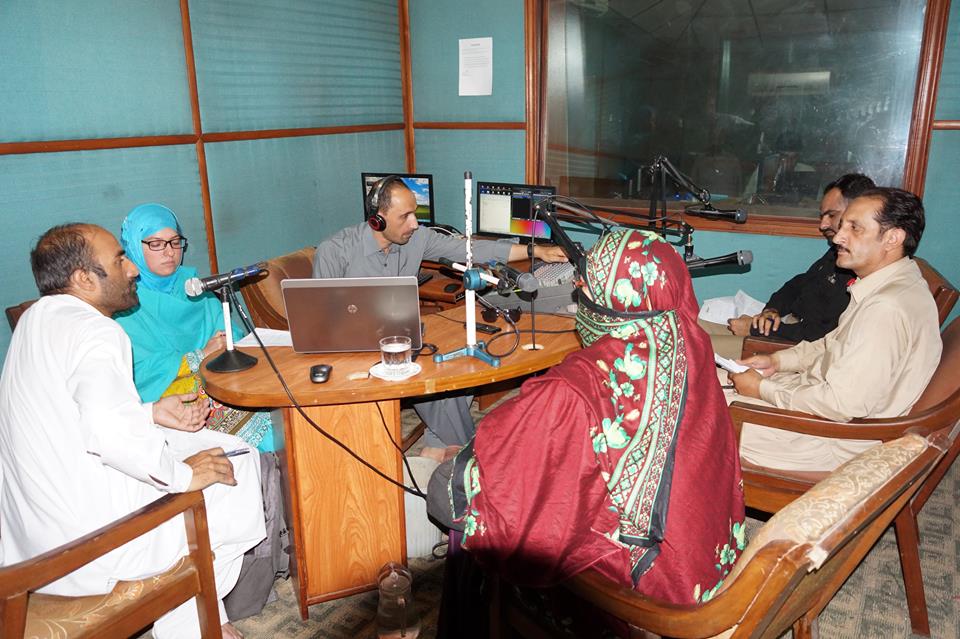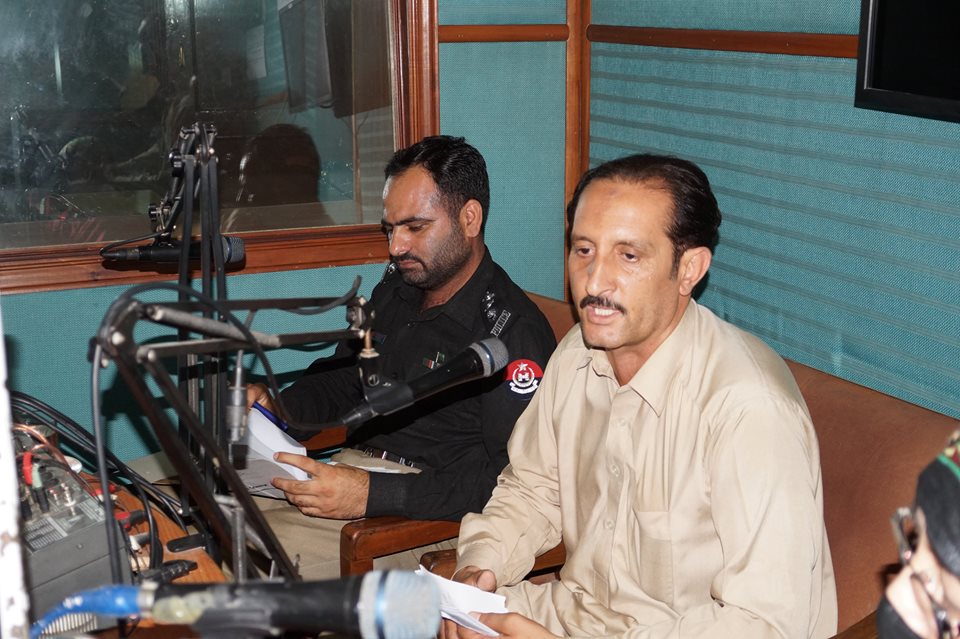The Center for Research and Security Studies (CRSS) aired three new episodes of its new flagship radio program “Ulasi Police” in the districts of Mardan, Peshawar and Charsadda on May 31, June 01 and 02 respectively.
“Ulasi Police” is an awareness and advocacy campaign undertaken by the Center – as part of USAID Small Grants and Ambassadors’ Fund Program – to strengthen the rule of law in KP province by promoting and disseminating the significant police reforms aimed at incorporating local communities’ policing needs and international human rights standards. The endeavor aims to ameliorate the trust deficit between the public and police, help KP police become an accountable and community-focused police force.
First Information Report (FIR) – Importance and Procedure:
Ulasi Police aired from Pakhtunkhwa Radio, FM-92.6, Mardan on May 31, 2016 discussed the process of the registration of First Information Report (FIR) and Diary, and how a case is processed further in the courts after the FIR has been registered. The program also highlighted the importance FIR in justice system, difference between FIR and Diary, cognizable and non-cognizable cases and online FIR registration mechanism.
“First Information Report (FIR) is a written document prepared by the police when they receive information about the commission of a cognizable offence. It is a report of information that reaches the police first in point of time and that is why it is called the First Information Report. It triggers the government machinery to provide justice to the victims of crimes. A cognizable offence is one in which the police may arrest a person without warrant. They are authorized to start investigation into a cognizable case on their own and do not require any orders from the court to do so. In-case of a non-cognizable offence in which a police officer has no authority to arrest without warrant, the police can register it in Roznamcha (Diary)”, said Mr. Luqman Khan, Station House Officer (SHO), Toru Police Station Mardan.
The other guest participants of this radio show were Mr. Nadeem Arshad, Lawyer; and Mr. Humayun Khan, Assistant Sub Inspector/Clerk Toru Police Station, Mardan.
Role of Modern Information Technology Tools in Police Performance:
Ulasi Police aired from Pakhtunkhwa Radio FM-92.2 Peshawar on June 01, 2016 focused on the role of modern information technology tools introduced as part of the Police reforms and how they have made things easy for police. Some salient reforms in this regard include Vehicle Verification System (VVS), Individual Verification System (IVS), Public Access Services (PAS), CNIC Verification System (CVS), Online FIR, Save Our Soul (SOS) system and Criminal Record Verification System (CRVS)
Some results include:
- 8,000 Online FIRs
- 1800 out of the 2300 schools on SOS system and they can inform police through one single text in case of emergency but it is not limited to schools only.
Other guest participants included Mr. Asfandyar Khan, Assistant Director, Information Technology Branch of Police, Peshawar; and Mr. Basher Ahmad, Lawyer and Advocate High Court, Peshawar.
Police Assistance Lines (PAL) and Police Access Services (PAS):
PAL and PAS were the central themes of Ulasi Police aired from Dilbar Radio, FM-93, Charsadda on June 02, 2016. The Khyber Pakhtunkhwa Police has established Police Assistance Lines (PAL) in every district headquarter of the province including Charsadda. The PALs offer a one-window corporate style solution to the public for the resolution of their day-to-day affairs. Their services include:
- Theft reporting
- Lost Items reporting
- Extortion reporting
- Child lost and found
- Tennant Information Form and rental agreement reporting
- Police Security Clearance Certificate
- Police Character Certificate
- CNIC verification
- Vehicle verification
- Legal advice
- Women counter
- Traffic license and excise document attestation
Police Access Service (PAS) is a mechanism established by the KP Police that not only provides prompt and swift police response to the public complaints but also enhances police accessibility. The department has established a well-equipped Police Access Service Center in Central Police Office where citizens from across the Province access the police through a SMS and the concerned police officers contact the complainants within 24 hours.
Mr. Allama Iqbal, In-charge Police Assistance Lines Charsadda; Mr. Nosherwan Khan, Focal person Police Access Services Charsadda; and Ms. Afsar Bano, social activist and local government representative Charsadda, were the in studio guests in the program.
Three field based research stories were also aired during these shows; one each from district Mardan, Peshawar, and Charsadda. The reports highlighted central themes of the shows and shared views of the community members, lawyers, police officers and intelligentsia. Several live calls from the public were also made part of the shows. The callers appreciated the performance of the KP Police and admired the progress of the KP police initiatives such as Police Access Services and Police Assistance Lines. They also shared their problems and were answered by the guest police officials in the radio programs.

